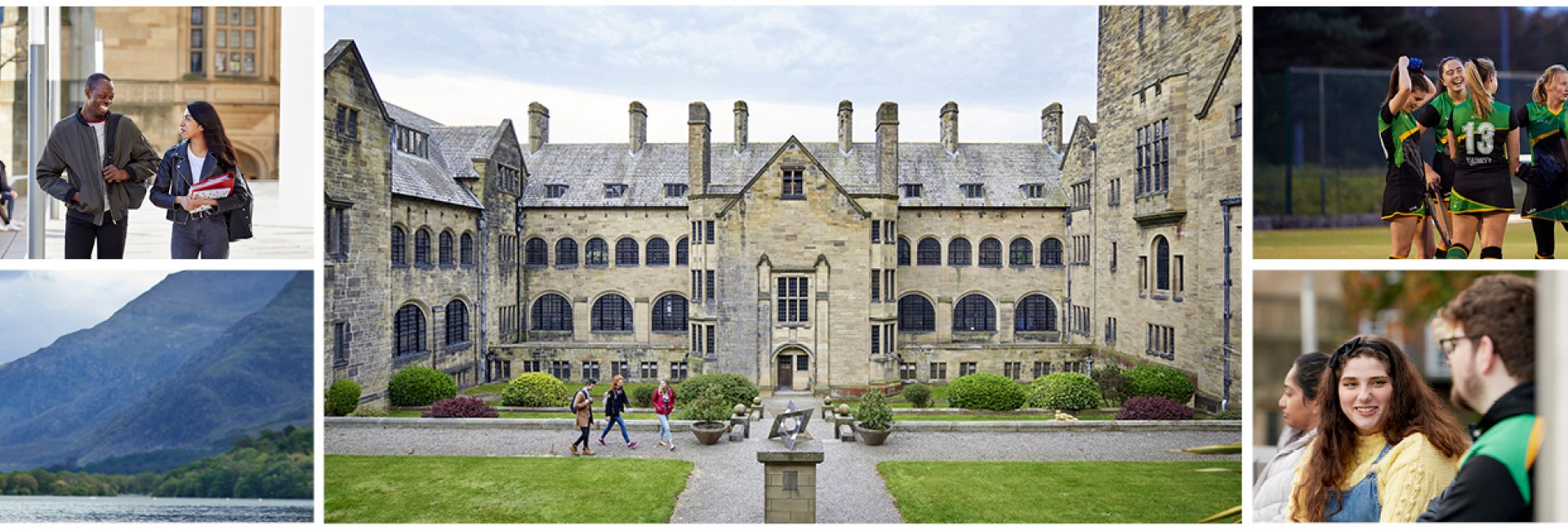Bangor University - Open Day
5 Jul 2025, 09:00
Bangor

This 4 year degree will follow the same course structure as the Marine Biology BSc. In the 4th year you will specialise and carry out a substantial research project. You will be able to work in a staff member’s research group and will gain valuable research experience of working in a research environment.
Marine Biology is the study of organisms that occupy 95% of the biosphere of our planet, living in conditions ranging from the polar seas (below -2℃) to hydrothermal vents (greater than 100℃). We are increasingly aware of the value of marine organisms for their role in influencing and indicating changes in our climate, for food, medicine and other products. The majority of the worlds species are found in the oceans; and range from the smallest micro-organism on the planet to the largest invertebrates such as giant squid and mammals like the blue whale. This very popular course allows you to study the fundamental aspects of the biology of marine life as well as more specialised aspects such as aquaculture, fisheries and marine biotechnology.
We are one of the largest university centres teaching marine sciences in the UK and among the biggest in Europe.
‘Placement Year’ and 'International Experience Year’ options are available for this course. You will have the opportunity to fully consider these options when you have started your course at Bangor and can make an application for a transfer onto such a pathway at the appropriate time. You can find more information about these options on our website and if you have any questions, please get in touch.
If you don’t have the required qualifications for this degree-level course or are looking to re-enter education after time away from study, then a Foundation Year Programme might be the right choice for you. Please see Marine Biology (with Foundation Year) C16F.
For details of the modular structure, please see the course description on Bangor University's website.

Learn what it's like to study at Bangor University. From key stats to campus highlights, open days, and more - find everything you need to know here.
The following entry points are available for this course:
Discover what it's like to study Marine Biology at Bangor University: insights on the course, making friends, personal statement tips, uni prep, and recommended books, podcasts, and videos.
We allow you flexibility in meeting our entry requirements and accept a broad range of qualifications. We are happy to accept combinations of the qualifications listed above, as well as alternative Level 3 qualifications such as City & Guilds, Access and Cambridge Technical Diplomas. We also welcome applications from mature learners and/or those with other qualifications are considered on individual merit. If you cannot find the qualifications that you are studying (or have completed) listed above, please contact us for advice: applicantservices@bangor.ac.uk
If you don't think you'll meet the entry requirements specified, you may be able to gain entry to this course via a Foundation Year route. Please see: Marine Biology with Foundation Year (UCAS Code: C16F).
International Candidates: school leaving qualifications that are equivalent to A levels/Level 3 and/or college diplomas are accepted from countries worldwide (subject to minimum English Language requirements), details at: www.bangor.ac.uk/international/applying/entryrequirements
For the most up-to-date information on acceptable English Language proficiency qualifications, please visit our webpage below. https://www.bangor.ac.uk/international/future/englishlanguage
This section shows the range of grades students were previously accepted with - learn more. It is designed to support your research but does not guarantee whether you will or won't get a place. Admissions teams consider various factors, including interviews, subject requirements, and entrance tests. Check all course entry requirements for eligibility.
Students aged 17/18 who applied to this course were offered a place.
See how students with your grades have been accepted onto this course in the past.
Operated by the Office for Students
Employment after 15 months (Most common jobs)
Go onto work and study
The number of student respondents and response rates can be important in interpreting the data – it is important to note your experience may be different from theirs. This data will be based on the subject area rather than the specific course. Read more about this data on the Discover Uni website.
| Location | Fee | Year |
|---|---|---|
| Republic of Ireland | £9000 | Year 1 |
| England | £9000 | Year 1 |
| Northern Ireland | £9000 | Year 1 |
| Scotland | £9000 | Year 1 |
| Wales | £9000 | Year 1 |
| Channel Islands | £9000 | Year 1 |
Tuition fee status depends on a number of criteria and varies according to where in the UK you will study. For further guidance on the criteria for home or overseas tuition fees, please refer to the UKCISA website.
Tuition fees and scholarship information for International applicants can be found here:
https://www.bangor.ac.uk/international/tuition
Bangor (Wales)
LL57 2DG
Visit our website Visit our course page